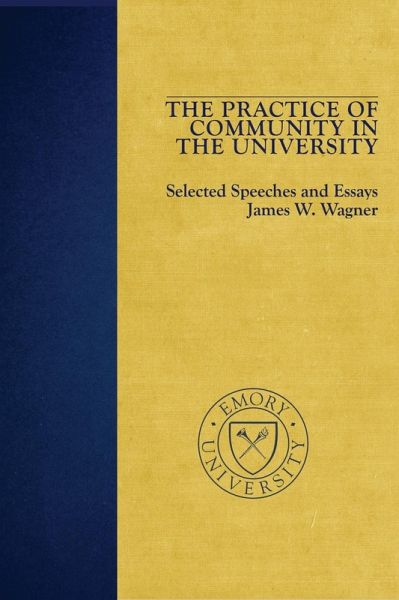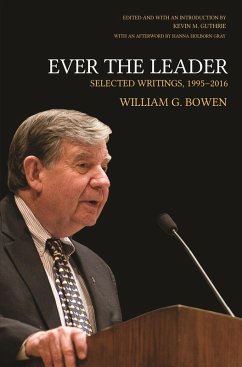
Practice of Community in the University (eBook, ePUB)
Selected Speeches and Essays
Sofort per Download lieferbar
8,95 €
inkl. MwSt.

PAYBACK Punkte
4 °P sammeln!
Emory University President Emeritus James W. Wagner collects eighteen speeches and essays that set out his view of liberal arts education, its hoped-for effects on the lives and characters of students, and his perception of the university campus as a place where passionately opposed points of view can be discussed and debated productively, resulting in greater self-understanding and a positive impact on society. Included are a selection of his baccalaureate addresses to Emory graduating classes; columns published in Emory Magazine and the Atlanta Journal-Constitution; and addresses delivered a...
Emory University President Emeritus James W. Wagner collects eighteen speeches and essays that set out his view of liberal arts education, its hoped-for effects on the lives and characters of students, and his perception of the university campus as a place where passionately opposed points of view can be discussed and debated productively, resulting in greater self-understanding and a positive impact on society. Included are a selection of his baccalaureate addresses to Emory graduating classes; columns published in Emory Magazine and the Atlanta Journal-Constitution; and addresses delivered at the National Press Club, the Twentieth Annual Forum of National Ethics Councils, and the University of Delaware, Dr. Wagner's alma mater. Themes include understanding the college campus as a place uniquely situated to hold difficult conversations; the importance of the liberal arts in American society, including an argument that inquiry-driven engineering should be understood as one of the liberal arts; and his understanding of collegiate education as a means of shaping moral character and authentic personal identity. A foreword by former U.S. President (and University Distinguished Professor) Jimmy Carter notes a shared interest between himself and President Wagner in international health, leading to Emory's formation of the Institute for Developing Nations and the Emory Global Health Institute. Carter adds that Wagner "committed himself to building an academic community that met and resolved the most challenging issues. I especially appreciated his support of what he calls 'impossible conversations'-conversations that people typically avoid because of the discomfort they bring. I agree that a great university must be engaged in fostering and, indeed, requiring such conversations. With these and other insights, Jim provides us much to consider."
Dieser Download kann aus rechtlichen Gründen nur mit Rechnungsadresse in A, B, BG, CY, CZ, D, DK, EW, E, FIN, F, GR, HR, H, IRL, I, LT, L, LR, M, NL, PL, P, R, S, SLO, SK ausgeliefert werden.













